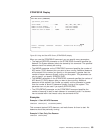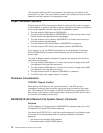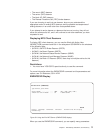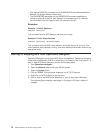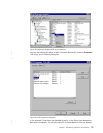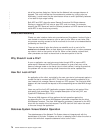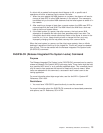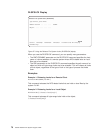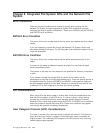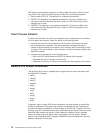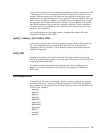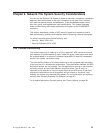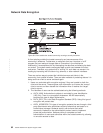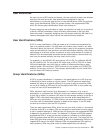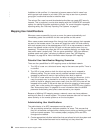
Chapter 8. Integrated File System APIs and the Network File
System
Error Conditions
There are two error conditions that commonly appear when working with the
Network File System through integrated file system APIs (application program
interface) that require special consideration. These error conditions are the ESTALE
and EACCES error conditions.
ESTALE Error Condition
The return of this error number means that the server has rejected the file or object
handle.
If you are accessing a remote file through the Network File System, the file may
have been deleted at the server. Or, the file system that contains the object may no
longer be accessible.
EACCES Error Condition
The return of this error number means that the server denies permission to the
object.
A process or job made an attempt to access an object in a way that the object
access permissions forbid.
The process or job does not have access to the specified file, directory, component,
or path.
If you access a remote file through NFS, the client will not reflect any file
permissions at the client until local data updates occur. There are several options to
the Add Mounted File System (ADDMFS) and MOUNT commands that determine
the time between refreshes of local data. Access to a remote file may also fail due
to different UID or GID mapping on the local and remote systems.
API Considerations
When using APIs that either create or remove files, there are considerations that
deal with the throughput of the NFS server. If a server is busy, a client making
requests can timeout and send the same requests multiple times to the server.
Because of this, clients may receive either the EEXIST or ENOENT error conditions
when they create or remove files using APIs. These error conditions may appear
even though the operation completely successfully.
User Datagram Protocol (UDP) Considerations
To create or remove a file, the client sends a request to the server. If the server is
busy, the client may timeout a number of times before the server completes the
original request. The underlying UDP support of the NFS protocol may incorrectly
handle these multiple requests.
© Copyright IBM Corp. 1997, 1999 77



